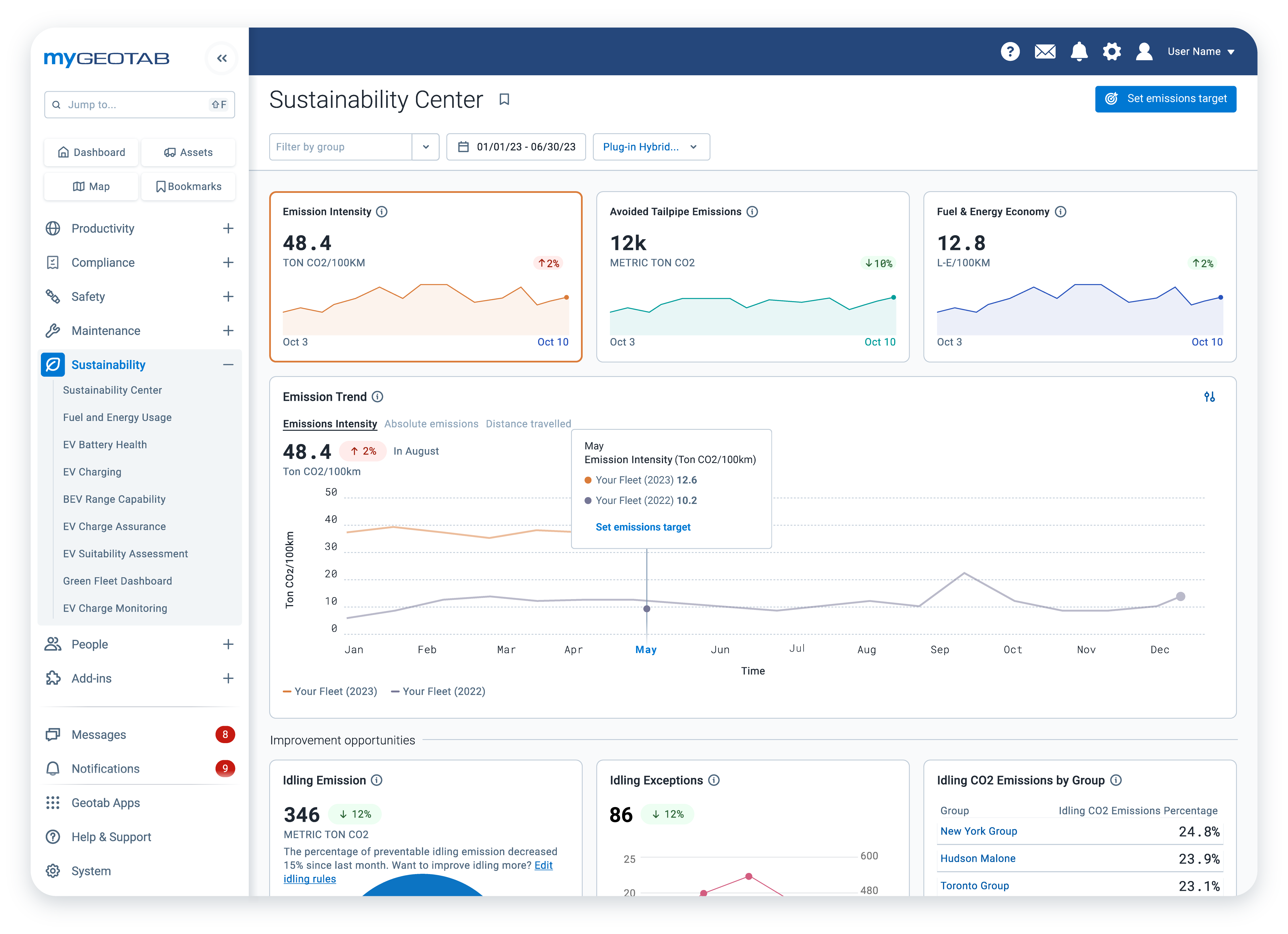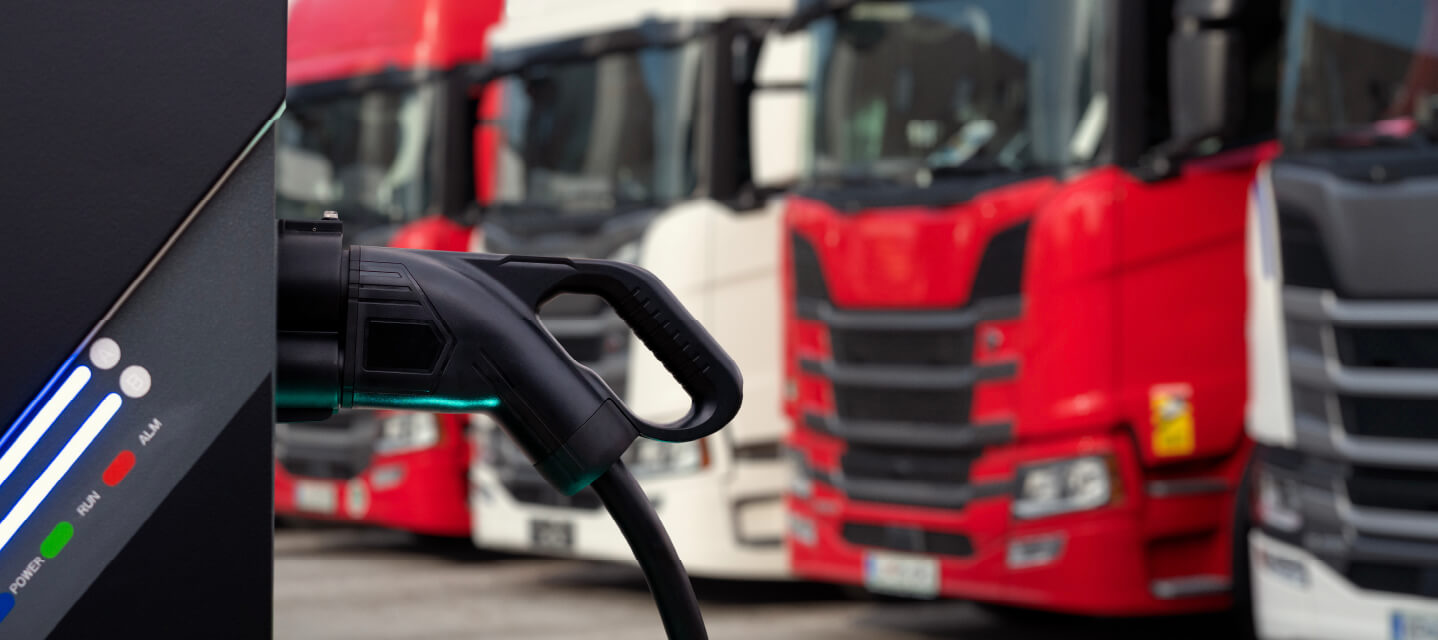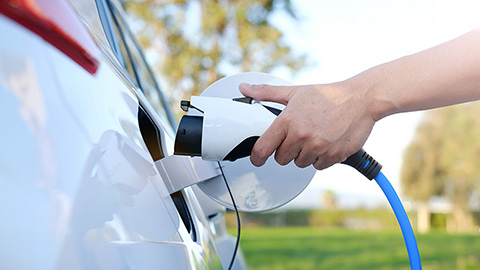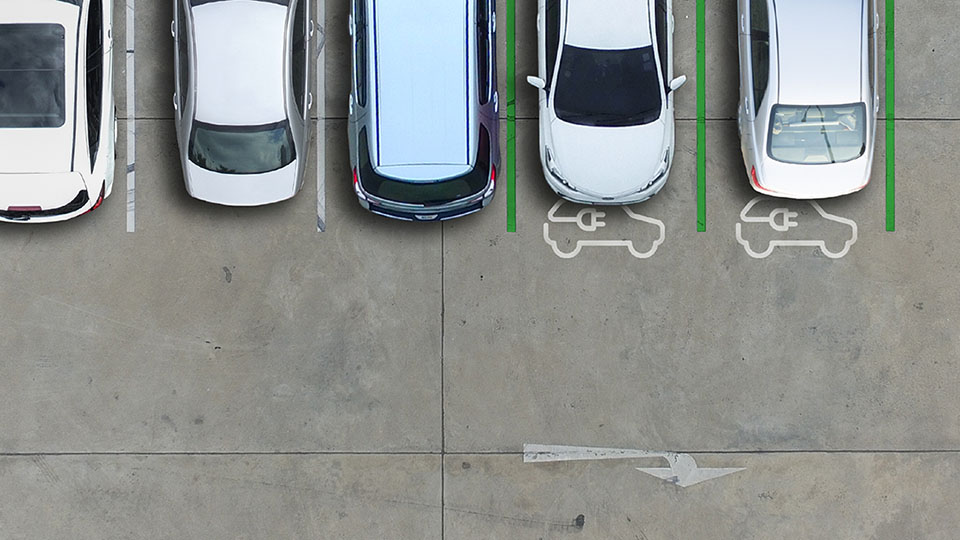What is fleet sustainability?
Find out how to achieve your green fleet goals with telematics, including implementing EV strategies and tracking carbon footprints.

Dec 1, 2021
Updated: Apr 4, 2025

Scientists, governments and organisations around the world have jointly acknowledged the need to take action on climate change. Between rising water levels, record global temperatures and an increase in dangerous weather events, the need for climate action has never been more present.
In 2021, the United Nations (UN) held the UN World Climate Change Conference, COP26, in Glasgow, Scotland to bring parties together to speed up progress toward the 2015 Paris Agreement goals. COP26 provided a space for global alignment on climate action, including in the transportation sector. With CO2 emissions at an all-time high, it is now more important than ever for fleets to consider their sustainability goals and look to the future of green fleet technology.
Why is fleet sustainability important?
For fleets big or small, creating a sustainable fleet program is one of the best contributions that can be made to help reduce their impact on climate change.
Here are some additional figures to consider:
- In the year to September 2019, 18.9% of Australia greenhouse gas emissions came from transportation.
- One lite of petrol produces around 2.3kg of CO2, meaning the average vehicle emits approximately 5 to 8 tonnes of CO2 per year.
These statistics alone show the importance of sustainable intervention in fleets. Adopting green fleet strategies helps your fleet move into the future — and has many other business benefits as well, including:
- Reducing your organisation’s carbon footprint through better route management or use of alternative-fuel vehicles with fewer to no emissions
- Lowering long-term costs, such as spending less on fuel, oil and even maintenance
- Improving compliance with applicable emissions regulations
What is a sustainable fleet management strategy?
A sustainable fleet management strategy is a method of fleet operation that aims to positively impact the environment. It should promote efficient driving and reduce unnecessary idling, minimise a fleet’s carbon footprint, optimise routes, practice proactive vehicle maintenance and work to integrate electric vehicles (EVs) into a fleet.
Fleet sustainability refers to activities centered around reducing the environmental, economical and social impact of fleet vehicles, including strategies such as:
- Asset tracking
- Fuel-efficient driving
- Reduction of idling
- Carbon emissions
- Adoption of low- or zero-emission vehicles
- Right-sizing to meet fleet needs
- Vehicle pooling or car sharing
- Reducing total trips
- Considering alternative modes of transportation
Encourage staff participation in sustainability programs with incentives
Some organisations may even add one more green strategy to the list: encouraging all staff members to practice a sustainability mindset in their personal lives. Incentives can be created to promote walking, biking or using public transportation to get to work. Organisations can even help coordinate an employee rideshare program to make carpooling easier on staff.
Education and awareness campaigns, sustainability committees and special recognition, such as VIP parking spaces for carpooling and EV charging, are some other ideas for motivating employees to go green.

Supporting sustainability goals with telematics
To act on a fleet sustainability plan, a fleet needs data. This data has to tell the fleet’s whole story to drive efficient decision-making. One of the key roles telematics devices play in fleet management involves fuel and energy consumption for all types of vehicles, including EVs. By focusing on fuel reduction and fuel efficiency improvements the benefits can ripple throughout operations, from a reduction on safety and collision costs to lowered maintenance.
The Geotab open platform and GO telematics devices retrieve important information from vehicles on a quantitative scale, letting you monitor every aspect of the fleet. In addition to GPS location, you can measure and manage idling time, dangerous driver behaviour, customer visits, and many other metrics. All this comes together so a fleet can work on inefficiencies and embrace new ideas, such as adopting electric vehicles (EVs).
Telematics can help fleet operators measure and take action on their sustainability targets. At Geotab, we offer several tools and services to help develop a strong sustainable fleet strategy, including:
- EV Suitability Assessments (EVSA)
- Electric vehicle monitoring
- CO2 Emissions Report
- Route Optimisation
- Keyless car share
The future of fleet sustainability
When it comes to fleet management, it's vital to think about the impact your decisions will have on the future of not only your company, but the world around it. To move forward into a greener world, fleets need to start focusing on how to manage their energy and resources to help build a better, greener planet.
The State of Sustainable Fleets report compiles real-world data from fleets across the U.S. to provide sector-specific insights about the adoption of sustainable vehicle solutions compared to diesel and petrol-powered vehicles. The study looks at multiple industries within the world of fleet management to offer analysis into vehicle sales trends, predicted vehicle development schedules, real-world infrastructure and fuel prices and the expanding use of renewable fuels.
In 2021, the report highlighted six key findings for the fleet industry:
- There was a surge in orders and deliveries for and battery-electric cars as well as lower-carbon renewable fuels.
- Fleets reported lower total cost of ownership and fuel savings when using green fleet technology.
- Fleet commitments to sustainability will bring EVs to the forefront of green fleet technology in just three to five years.
- Investments in fuel cell manufacturing has doubled the number of green fleet options for Class 8 vehicles (trucks and buses).
- Policy regulations and ambitious sustainability targets are driving demand for all clean technologies in the fleet industry.
- Green fleets are only poised to get greener as new technology emerges.
In addition to these findings, 98% of fleets polled expect to enhance or maintain their use of sustainable vehicle technologies and fuels.
Why fleet sustainability matters
With rising fuel costs, increased congestion and the global push for greener solutions, it’s vital to take stock of your fleet’s environmental impact. Governments around the world are beginning to push for sustainable solutions when it comes to transportation, with some already implementing clean air zones to help control emissions in large city centres.
As the transportation sector grows, it is likely that the carbon emissions associated with it will too. However, if fleets take the steps now to embrace more sustainable alternatives, not only could you be saving your fleet money in the long run, but you could be getting ahead of the curve in the sustainability movement.
Not sure where to start? Visit our Fleet Sustainability solutions page. Learn about Geotab’s commitment to the environment and read about Sustainability Report on our Corporate Sustainability page.

Charlotte is Senior Manager, Fleet Electrification for Geotab.
Related posts

Sustainability Centre: central hub for sustainable fleet management
January 28, 2025
2 minute read

Electric vehicle sales double in Australia: here are three trends in EV adoption
September 8, 2024
2 minute read

How long do electric car batteries last? What analysing 10,000 EVs tells us…
May 31, 2024
9 minute read


Building a business case for adopting EVs and sustainable fleet strategies
September 7, 2023
3 minute read

A successful electric fleet strategy starts with optimising fleet operations
September 5, 2023
4 minute read
